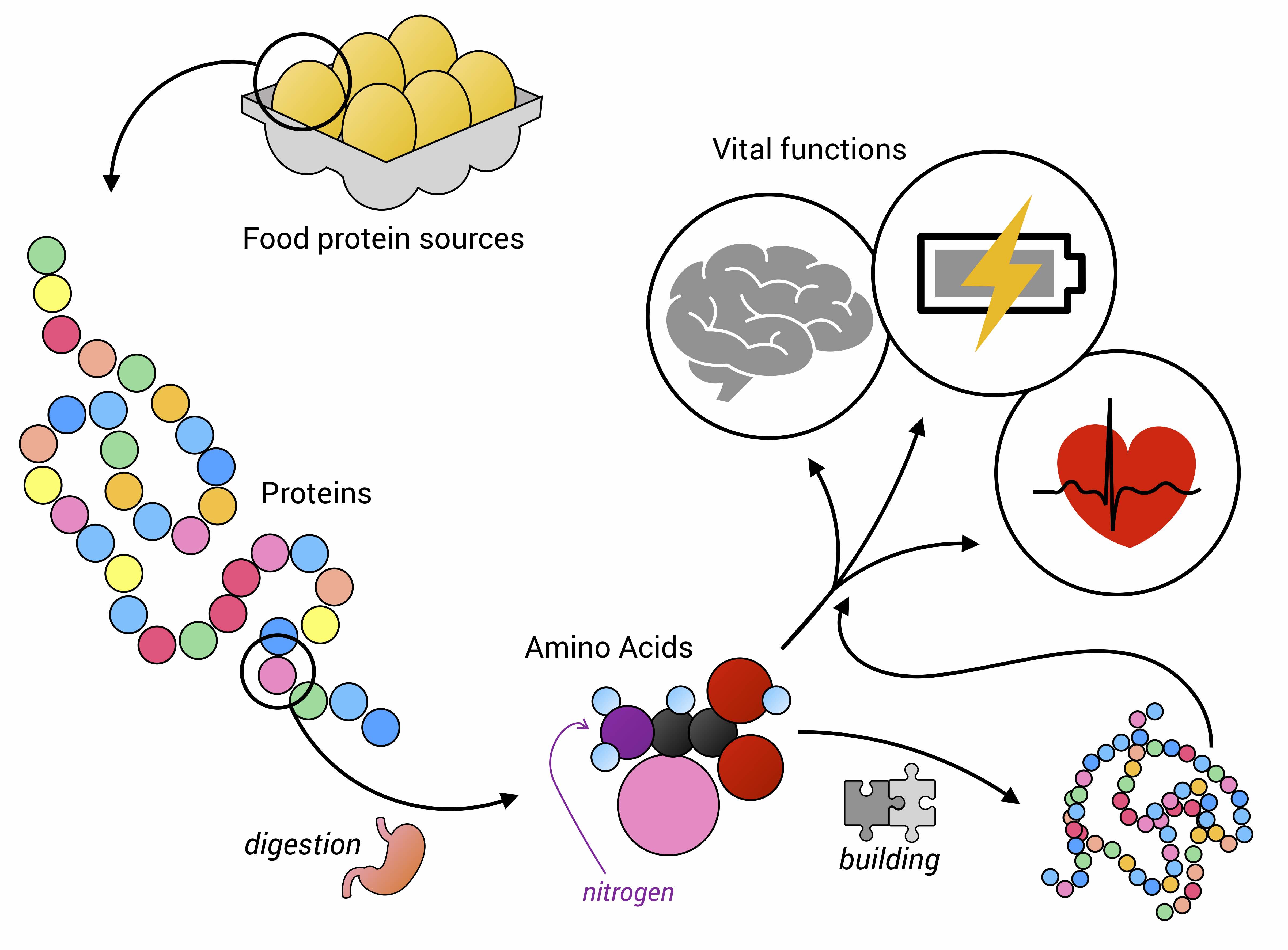How much protein is optimal?

To sustain vital functions we need to eat proteins. But just how much protein do we need? Is there such a thing as "too much" protein? Does it depend on the protein sources?
Our body synthesizes proteins for a number of vital functions. To build proteins, our body assembles chains of amino acids. To find the amino acids, it uses amino acids broken down from food protein sources. Our body can also harvest nitrogen found in the proteins to fully synthethize other amino acids. Some amino acids cannot be synthethized. Therefore, daily intake of carefully chosen proteins is essential.
The main function of protein synthesis is muscle generation; that our body constantly operates. But it also serves a lot of metabolic functions: transmission of information between neurons, biosynthesis of nitric oxide that regulates blood circulation, substrate for messenger RNA transmission, etc. Proteins can also serve as an energy source, although this process is rarely used as it is not very efficient.
According to national health agencies in Europe and North America the recommended intake of protein for a healthy individual is 0.8 g/kg/day. This translates to 48 g of proteins per day for a 60 kg (132 pounds) individual or 64g for a 80 kg (176 pounds) individual. However, the same agencies also recommend that proteins represent at least 10% of total daily calorie intake, which translates into about 1.1 g/kg/day.
Can we benefit from more? It turns out that resistance-training individuals benefit up to 2.0 g/kg/day to maximise muscle protein synthesis (although more than 0.4 g/kg/meal yields no further benefit). Older people, who are more prone to muscle loss, should aim for safe, regular resistance and endurance type training along with a protein intake of about 1.0 g/kg/day (higher intakes without resistance training do not seem to improve muscle mass). Furthermore note that it is a common misbelief that high protein diets - alone - lead to a deterioration of bone health.
So just how much is safe? It turns out that intakes up to 2.0-2.5 g/kg/day have been shown to be safe in short-term studies for healthy individuals. However these levels are preferred for active individuals to support muscle growth, or prevent muscle loss (if the aim is fat loss, implying a calorie deficit, for instance).
What about the type of protein, especially animal-based versus plant-based? Our body absorbs animal-based proteins slightly better than plant-based, yet that does not really impact the recommended amounts. Note that with a plant-based diet, it is perfectly feasible to acquire all essential amino acids and achieve even high protein intakes (say 2.0 g/kg/day). Several studies have linked high intakes of animal protein - from 0.8 g/kg/day of animal protein - to age-related diseases (cancer, diabetes, cardiovascular diseases). This risk is particularly noticed for red meat (beef, pork, lamb) and even more so for processed meat. Substitution by plant-based protein has been shown to lower overall mortality. Maintaining an adequate intake is important for this substitution to avoid other age-related risks, especially muscle loss.
Learn more about the carbon impact of meat and dairy proteins ! We will follow up soon on the carbon impact of other protein sources.
